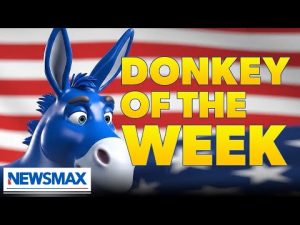In the great circus that is American healthcare, one can scarcely hear above the clamor of market dynamics and political rhetoric. Recently, discussions about affordability have once again taken center stage with commentary revealing just how much of a misnomer the Affordable Care Act, or Obamacare, has turned out to be for many Americans. Since its inception, Obamacare was touted as the savior of healthcare, promising to make insurance affordable for everyone. Yet, nearly a decade later, it seems the savior’s halo is slipping, especially for those in the middle, like fifty-year-olds trying to balance the cost of just existing.
For those enrolled in Obamacare, the numbers are likely burning a hole in their pocketbooks. Let’s break it down: since 2014, premiums have skyrocketed by 129 percent for a typical fifty-year-old. That’s not just a minor uptick but a climb that leaves most people clinging to the edge. This increase has happened at twice the rate of employer-based insurance premiums and far surpasses the path traced by the Consumer Price Index by 90 percent. Such statistics make one wonder if “affordable” in the Affordable Care Act was meant to be appreciated as a relative term—like, it’s technically still cheaper than a stable full of unicorns.
Alongside rising premiums, the healthcare landscape has witnessed another shift—an exodus of physicians from private practices. Back in 2012, a comfortable 60 percent of doctors were in private practice. Fast forward to the present, and that number has plummeted to 42 percent. Perhaps physicians, like many others, have been pressured out of their traditional settings by the labyrinthine requirements and reimbursement cuts that have come hand-in-hand with Obamacare. The romantic notion of the small-town doctor may soon be as outdated as dial-up Internet, pushed aside by the looming specter of large healthcare conglomerates.
Among those with a change of heart is Dr. Dan Choi, who has expressed his regret over previously supporting President Obama. Once a medical student who celebrated the act’s passage, he now shares many other doctors’ disillusionment. These stories are becoming more common as the harsh realities of the law’s long-term impacts become clearer to those who have dedicated their lives to healing and helping others. It raises the question of how those once optimistic supporters now view the legacy of policies that have shifted the landscape of medicine so profoundly.
As the debate over healthcare affordability rages on, the takeaway seems clear: what was supposed to be a panacea has turned into a puzzle. With physicians departing from independent practices and premiums continuing to climb higher than an expression of Sean Hannity’s outrage, something’s got to give. The challenge is to figure out how to truly make healthcare accessible and affordable without entangling Americans further into a web of unsustainable costs and dwindling options. It’s a tall order, but one that’s overdue, before the “affordable” in our healthcare vocabulary completely loses its meaning.







